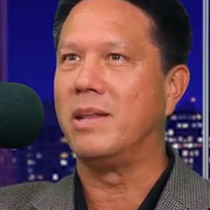How Much Are Fortune 500 Companies Saving in Taxes?

It’s a well-known fact that many of the richest companies in America have become so financially successful thanks in large part to the tax-savings methods they employ, not the least of which is keeping large amounts of income overseas. These American companies have no problem doing business stateside, but because the U.S. has some of the highest corporate tax rates in the world, they can save millions in taxes by leaving that money in the country where it was earned.
In fact, according to a recent report from Citizens for Tax Justice, the largest Fortune 500 companies in America are storing as much as $2.5 trillion in foreign countries, which is $400 million more than last year. This is not hidden money, stored away in secret bank accounts, mind you, but rather revenue legally earned and held overseas. So why not bring the money back to the U.S.? As long as it stays overseas where it was earned the IRS can’t tax those earnings.
Of course, some people feel that isn’t fair, including the organization Citizens for Tax Justice, which wants the government to tax all income earned by U.S. companies, no matter what country it’s earned in. The problem with that scenario is that companies might decide to simply move their headquarters to other countries in order to avoid this extra tax, which could cost the country even more tax revenue, as well as jobs.
President Obama has recently proposed a 19 percent global minimum tax, which means any foreign subsidiary of a U.S. company that pays at least 19 percent in overseas taxes would be allowed to bring that money back to America without being taxed again stateside.
Of course, both current presidential candidates have their opinion on the matter. Donald Trump wants to significantly lower the corporate tax rate and combine it with a one-time 10 percent tax on any income being held in foreign countries. This could help give companies more of an incentive to bring the money home to the U.S. Hillary Clinton reportedly wants to keep the current standards but she also wants to add an “exit tax” for companies that leave.
Either way, it’s likely that companies will continue to keep foreign earnings overseas unless the government creates a more tax-friendly environment for American corporations.
You also might like the article Study Shows Benefit of Lower Corporate Tax
http://fortune.com/2016/10/06/fortune-500-tax-haven/
Power of Innovation | Dean Sivara
Power of Innovation About Dean Sivara Dean is the Vice President of Innovation & New Businesses, in the Products & Innovation Group. The Innovation and New Businesses practice is one of SAP’s global incubation and commercialization engines, looking to capitalize on industry disruptions and building new businesses in adjacent markets. The Innovation group evaluates new…
Real Estate 101 | Sherri Stoneberger
About Sherri Stoneberger Stonberger received her foundation of work ethics. growing up on a family farm in Oklahoma. She attended college at the University of Central Oklahoma, earning a degree in human development, with a physical education minor. After graduation she became a military wife and eventually settled in the Mission, Fremont area where…
Optimizing Your App | Trevor Cornwell
About Trevor Cornwell Trevor Cornwell, Founder and CEO, appbackr inc., a Palo Alto-based Market Exchange for Apps. Appbackr helps publishers and platforms identify the rights apps to optimize revenue. Appbackr is a winner of the PayPal X Developer Challenge, an OnMobile 100 Company and an AlwaysOn 250 Company. Cornwell’s career has been spent developing and…
Intel Chief Economist | Paul Thomas
About Paul Thomas Paul Thomas is chief economist and manager of market sizing and forecasting at Intel Corporation in Santa Clara, Calif. He joined Intel in December, 2004, after working at Continental Airlines in Houston, Texas, from 1997 to 2004 and as chief economist from 2001 to 2004. Paul was senior economist at Douglas Aircraft…




